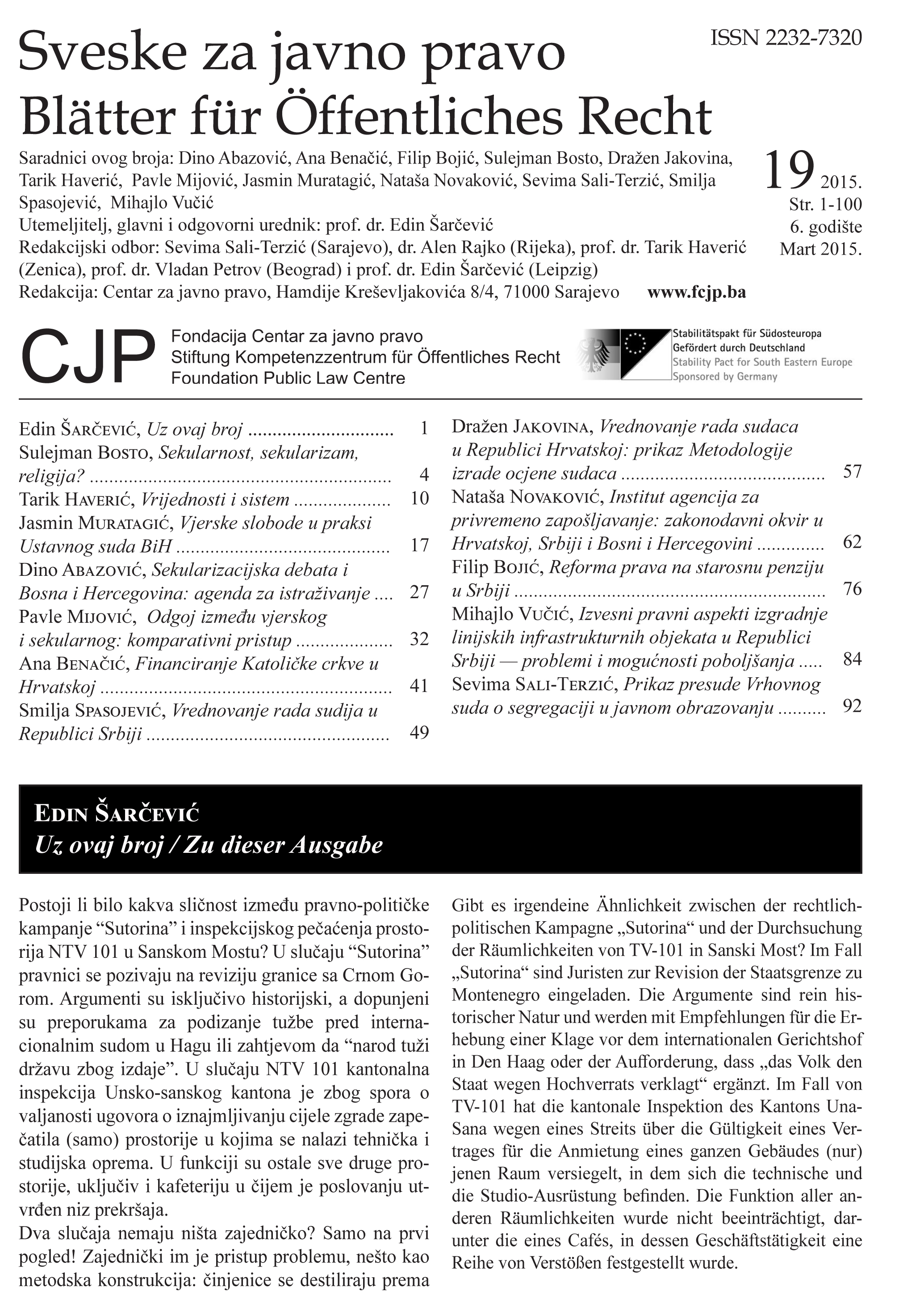Odgoj između vjerskog i sekularnog: komparativni pristup
Education between religious and secular: A comparative approach
Author(s): Pavle MijovićSubject(s): Anthropology, Education
Published by: Fondacija Centar za javno pravo
Keywords: Education; Religious; Secular; Republic of Croatia;
Summary/Abstract: Recently, a heated debate concerning school-based sexual education in Republic of Croatia provoked the necessity to rethink the relation of the education to the religious and the secular framework.In order to understand this phenomenon, we adopted a comparative approach. In the first part of this article our aim is to create a theoretical framework to guide our inquiry. The repercussion of a long sexual revolution in the 20th century that upset classical religious forms and had impact over institutional framework is analyzed.The second part analyses the difficulties of implementing the sexual education in three different institutional frameworks: a liberal (Sweden), traditional (Italy) and USA (sui generis). The common denominator among these different states is that the education as such is the problem of the secondary level to dominant political framework. Underlying issue is the profound difference between, on the one hand Christian-inspired anthropology and, on the other hand, the secular and scientific inspired anthropology. In the case of Sweden, sexual education became the mandatory part of the curriculum only after the fight for “he nation’s soul”. Italy, very differently, due to a significant social influence that Catholic Church has at the social level, lacks the formal program of the sexual education. Scientific based education concept, in use, in the States of America, encounters strong conservative response in issues concerning the sexual education.Final part of this paper presents an overview of the political context in Croatia in which the citizen’s initiative – In the name of the family - with the support of the Catholic church and rightwing parties – organized and held a referendum. Main idea behind the referendum allege that the model of the Croatian family is under threat, due to a intention of the government to introduce the sexual education in schools, within the general framework of civic and health education. The proposition: “Are you in favour of the constitution of the Republic of Croatia being amended with a provision stating that marriage is matrimony between a woman and a man?” was approved by a quarter of the electorate. Differently, less than fifty percent of voter numbers in Slovakia led to the failure to pass a referendum to amend the Slovakian Constitution. The tactic to defeat the referendum was by not taking part, a strategy that appeared very functional. The hypothetical case of introducing sexual education in Bosnia and Herzegovina is theorized in the final part.
Journal: Sveske za javno pravo
- Issue Year: 6/2015
- Issue No: 19
- Page Range: 32-40
- Page Count: 9
- Language: Bosnian, Croatian, Serbian

